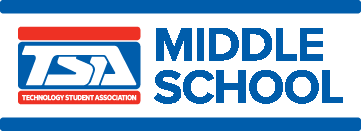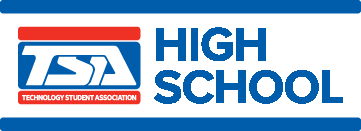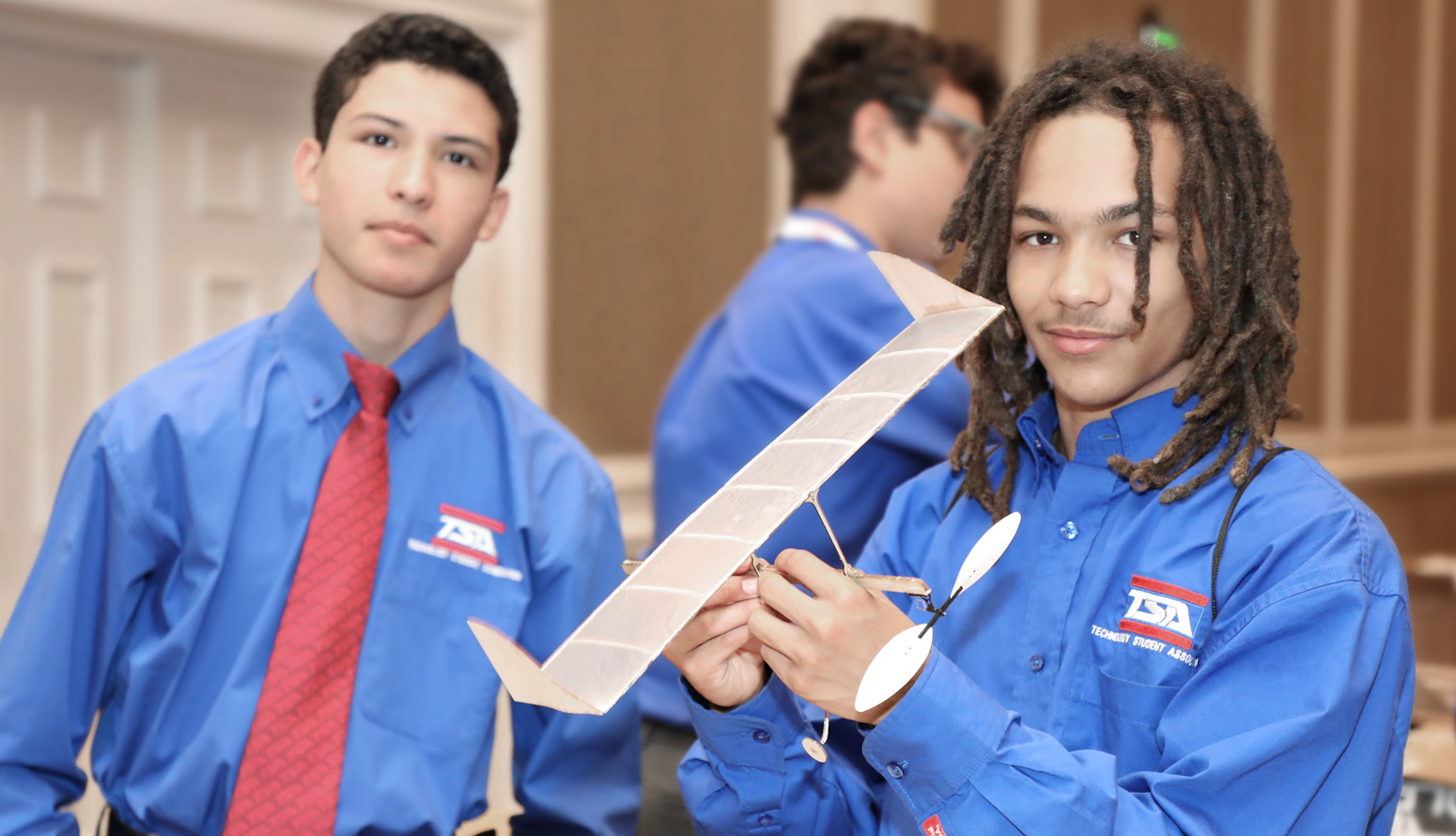
TSA offers 36 middle school competitions. Click on a category below to view a list of TSA middle school competitions and their summary descriptions in that category.
Audio Podcasting
Participants use digital audio technology to create original content for a podcast piece that addresses the annual theme. The podcast must feature high level storytelling techniques, voice acting, and folly sound effects. The full entry must include documentation of the podcast development process and elements. Semifinalists complete an onsite challenge to produce an additional podcast(s).
Biotechnology
To address the annual theme, participants select a contemporary biotechnology issue and demonstrate understanding of the topic through their documented research and an original display. Semifinalists participate in an interview.
Career Prep
Based on the annual theme, participants conduct research on a technology-related career, prepare a letter of introduction to a potential employer, and develop a job-specific resume. Semifinalists participate in a mock job interview.
Challenging Technology Issues
Following the onsite random selection of a technology topic from a group of pre-conference posted topics, participants work to prepare for and deliver a debate-style presentation, in which they explain opposing views of the selected topic.
Chapter Team
Participants take a parliamentary procedure test to qualify for the semifinal round of competition. Semifinalists conduct an opening ceremony, items of business, parliamentary actions, and a closing ceremony.
Children’s Stories
Participants create an illustrated children’s story based on the annual theme. The entry product is a physical storybook of artistic, instructional, and social value. Semifinalists read their story aloud and participate in an interview.

TSA offers 36 middle school competitions. Click on a category below to view a list of TSA middle school competitions and their summary descriptions in that category.
Children's Stories
In response to the annual theme, participants create an illustrated children’s story of artistic, instructional, and social value, and submit documentation related to the development of the physical storybook. Semifinalists read their story aloud and participate in an interview.
Coding
Participants take a test, which concentrates on aspects of coding, to qualify for the semifinal round of competition. Semifinalists develop a software program – in a designated amount of time – that accurately addresses an onsite problem.
Computer-Aided Design (CAD), Architecture
Participants use complex computer graphic skills, tools, and processes to respond to a design challenge in which they develop representations of architectural subjects, such as foundation and/or floor plans, and/or elevation drawings, and/or details of architectural ornamentation or cabinetry. The solution to the design challenge and participant answers in an interview are evaluated.
Computer-Aided Design (CAD), Engineering
Participants use complex computer graphic skills, tools, and processes to respond to a design challenge in which they develop three-dimensional representations of engineering subjects, such as a machine part, tool, device, or manufactured product. The solution to the design challenge and participant answers in an interview are evaluated.
Data Science and Analytics
Participants identify a societal issue, collect or compile data from various sources about the issue, and then produce documentation and a digital scientific poster about their findings. Semifinalists create a synopsis and digital visual representation of a data set provided in an onsite challenge.
Debating Technological Issues
Participants research the annual topic and subtopics and prepare for a debate against a team from another chapter. Teams are instructed to take either the pro or con side of a selected subtopic, submit a summary of references, and use their research to support their assigned position. The quality of a team’s debate determines semifinalists and finalists.
